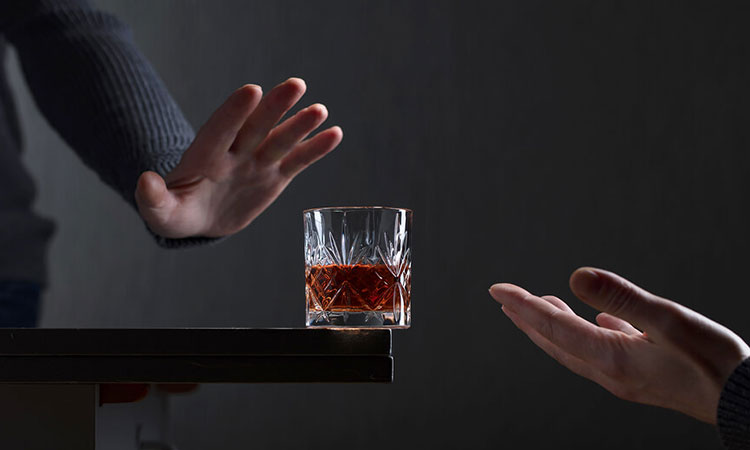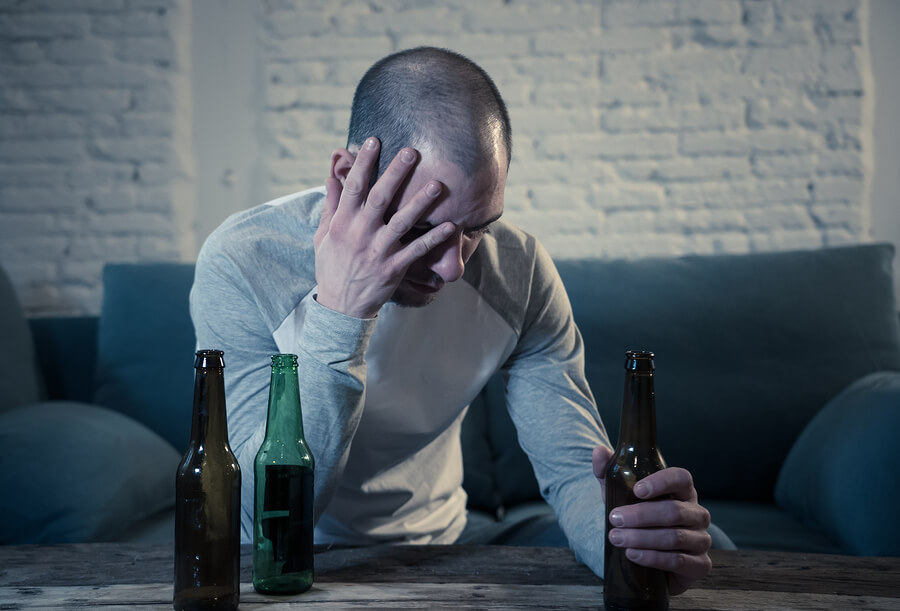
How to Stay Sober Through Relapse Prevention – A person suffering from an alcohol use disorder (AUD)—also referred to as alcoholism or alcohol addiction—has a chronic brain disease. This condition affects the reward system, resulting in tolerance, dependence, and compulsive behaviors related to alcohol use.
People who seek help to recover from an AUD have many options available in the form of comprehensive, evidence-based treatment, which focuses on altering behaviors through therapy and counseling at a rehab program. However, because addiction is considered a chronic disease, there is a high potential for relapse.
In fact, about half of all people who suffer from addiction, including alcohol will relapse at some point, a rate similar to those of other chronic illnesses such as hypertension and diabetes. People with these conditions can go back to their doctor to adjust their treatment plan, which may include medication and lifestyle changes.
People who have an AUD can regard the concept of relapse in a comparable way—as a recurrence of symptoms of the disease that requires returning to further treatment to adjust some aspects of the care plan or the development of a new one. To appropriately treat relapse, it is vital to understand what it is. Once symptoms are identified, people should seek treatment as soon as possible.
What Is Relapse?
Receiving counseling, attending peer support groups, finding new pleasurable activities other than drinking, taking advantage of emotional support from family and friends, and cultivating ways to manage stress and avoid triggers can help people newly out of rehab stay sober. However, it is critical to realize that a relapse can happen, and being able to recognize the warning signs is among the most effective ways to avoid this and minimize damage associated with it.
Regarding addiction, relapse is defined as the for the inability to stay sober indefinitely. For those experiencing an AUD, this may result in a return to escalating alcohol use or consuming another drug that acts in a similar manner as alcohol.
A relapse doesn’t necessarily mean that treatment didn’t work. Instead, it implies that a person needs more time and help returning to sobriety, which could include additional or altered medications, better social support, or different strategies to reduce daily stress.
What Are the Warning Signs of Relapse?

Signs of an impending relapse include the following:
Experiencing profound and uncontrollable emotions – People who have used substances such as alcohol to alter brain chemistry will have to acclimate to life without the help of self-medication. Moreover, adjusting to a job, family responsibilities, and social pressure can be challenging for a person just out of rehab. They may be able to take these tasks on and feel positive about the results, but may also be in denial about how worry and stress can wear them down.
Having difficulty accepting the changes in life – It’s not uncommon for people in recovery to experience stress related to schedule adjustments, health problems, or criticism more profoundly than others. They may have a more difficult time seeing the positive side, and subsequently, depressed or anxious feelings may lead to a relapse.
Holding the belief that relapse is improbable – In some cases, people erroneously believe that they have worked so hard to come so far that they will never relapse. Despite the statistics, they think they are somehow exempt from this risk. Falsely believing that relapse cannot and will not happen actually increases the risk of relapse.
Experiencing a loss of recovery commitment – People who stop attending support group meetings, therapy, or counseling sessions are at a heightened risk for relapse. Without mental and emotional support, the return to compulsive, negative behaviors is a looming threat.
Going to places or hanging out with friends associated with alcohol – Returning to old habits, such as visiting places where drinking occurred or tends to occur (e.g., bars or clubs), or spending time with friends who drink excessively or use drugs, places a person at risk for returning to problematic alcohol use.
Some other warnings signs that someone is in the midst of a relapse include:
- Breath smells like alcohol
- Being visibly intoxicated
- Money goes missing
- Missing or craving alcohol use
- Bottles or debris present related to drinking
- Being absent for extended periods or skipping work or school
How to Stay Sober: Developing a Relapse Prevention Plan
For some, relapse may seem unavoidable, but once again, this does not mean that treatment does not work. A treatment plan should also include relapse prevention strategies. Understanding relapse means one must be able to identify warning signs and find ways to avoid relapse when initial symptoms become present.
People recovering from AUD may be helped by prescription medication to mitigate cravings. For example, acamprosate and naltrexone are both prescribed in some cases to reduce cravings after the person has detoxed from alcohol. Reducing cravings helps the individual focus on their recovery and changing their behaviors concerning alcohol and finding new coping mechanisms.
Cognitive-Behavioral Therapy (CBT) is one of the most commonly employed forms of therapy, often used in rehab and mental health treatment. This type of therapy focuses on understanding the causes of behaviors, recognizing how these behaviors are not consistent with a healthy life and a person’s values, and the learning of new, healthier behaviors. Working with a CBT therapist can help a person in recovery from AUD learn about the warning signs of relapse, and practice new skills and coping mechanisms in advance of this occurring.

Some other methods to lower the risk of relapse include the following:
- Get social support through a peer support group such as Alcoholics Anonymous or SmartRecovery
- Associating with positive people who can help improve one’s mood
- Remembering the acronym HALT (hungry, angry, lonely, or tired), as these moods can influence stress levels and lead to bad decisions
- Learning new coping strategies, such as mindfulness meditation
- Knowing signs of relapse and maintaining a diary to monitor for them
- Immediately reach out for help in the event of a relapse
Working with a therapist or counselor to devise a relapse prevention plan can be extremely beneficial. This work includes developing a daily schedule for meals, logging experiences, engaging in supportive exercise, and finding others to talk to during stressful times.
A relapse prevention plan may also include a daily checklist, a list of reminders for appointments, and ways to identify triggers when they are encountered. This plan should also include a section detailing how to manage stress and triggers.
Getting Help For Alcoholism
The first step to overcoming addiction and solidifying your willingness to begin the recovery process is to seek treatment as soon as possible. Recovery By The Sea offers integrated treatment programs in both partial-hospitalization and outpatient formats, which include essential services such as cognitive-behavioral therapy, counseling, peer group support, and more.
We employ highly-trained addiction specialists who deliver these services to patients with compassion and expertise. We are dedicated to providing our patients with the resources and support they need to achieve abstinence and stay sober indefinitely!
If you or someone you love is struggling with an alcohol use disorder, contact us today to find out how we can help!